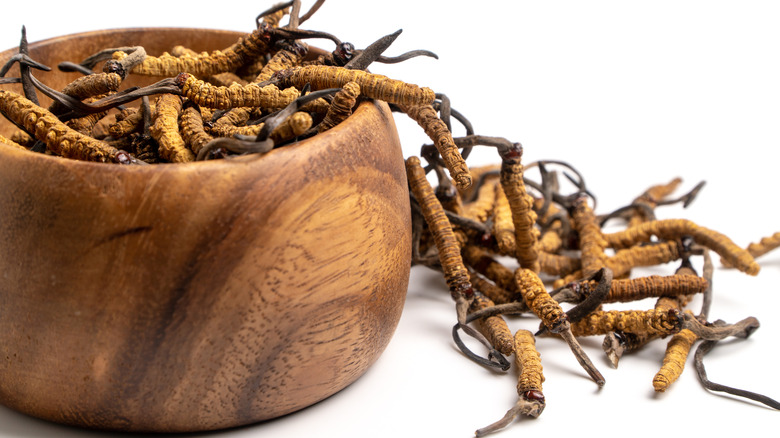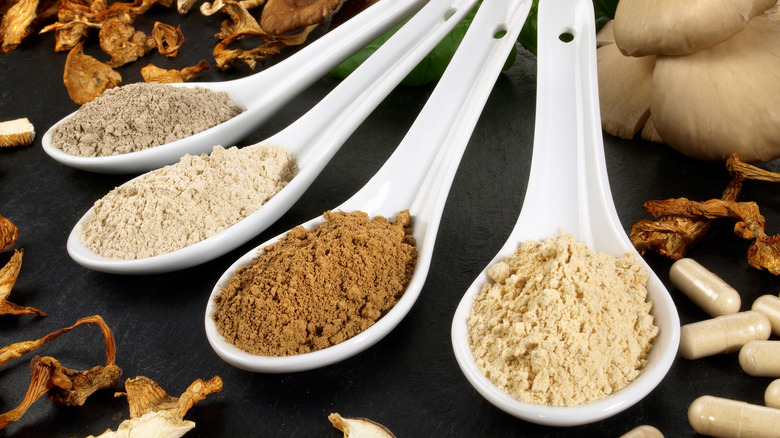Six Science-Backed Reasons To Include More Cordyceps Mushrooms In Your Diet
Cultures around the world have used mushrooms for medicine, food, and spiritual enlightenment since at least 5000 B.C., according to a 2011 article published in the Journal of Ayurveda and Integrative Medicine. In fact, traditional Chinese medicine (TCM) and Tibetan medicine use the cordyceps mushroom to treat diseases alone or in combination with other herbs. With over 400 species of cordyceps mushrooms being found, researchers have centered their focus on the two varieties with the most health benefits: cordyceps sinensis and cordyceps militarist (per Healthline).
The cordyceps sinensis grows at altitudes above 4500 feet in the mountains of Sikkim (via the 2011 article). It's known to be an unusual blend of a caterpillar and a fungus. The cordyceps fungus enters the host and sprouts long, slender fruiting mushroom bodies from within the body, explains Healthline. Traditionally, the caterpillar mushroom was collected and dried to treat a variety of health complaints. But if swallowing a mutant caterpillar mushroom is too macabre for you, don't worry. Today, most cordyceps supplements are made in a lab (via WebMD).
Researchers have uncovered old medicine books from the Sikkim region detailing how traditional Sikkim healers used the shroom as a tonic for "all illnesses" because of its ability to boost energy, appetite, libido, stamina, endurance and improve sleep (per the 2011 article). TCM, on the other hand, used cordyceps to treat kidney disease, fatigue, and low sex drive, explains Healthline. Luckily, the benefits don't stop there.
Cordyceps mushrooms may boost energy, strength, and sex drive
Cordyceps may have the ability to boost immunity by reviving certain chemicals and cells in the body (per WebMD). In doing so, it could help eliminate cancer and diminish tumors, especially in skin or lung cancers. In fact, a 2015 study in Molecules showed cordyceps militaris helped combat non-small cell lung cancer cells by boosting the level of cancer-fighting cells. Additionally, a 2018 study in the Journal of Ethnopharmacology showed cordyceps sinensis reduced the number of lung cancer tumors in mice and significantly increased the lifespan of mice treated with high doses of cordyceps compared to those who went untreated. In some cases, the fungi could go as far as altering the side effects linked with various cancer therapies (via Healthline).
Experts believe cordyceps can reduce inflammation in the body by suppressing certain cells. These shrooms possibly even protect heart health by helping to lower "bad" LDL cholesterol, as shown in a 2010 study published in the Journal of Pharmacological Sciences. In cases from China, one may even be given cordyceps if experiencing an erratic heart rhythm (per Healthline). But aside from assisting with the heart, cordyceps might also keep blood sugar levels in check by imitating the effect of insulin to help manage Type 2 diabetes.
Lastly, cordyceps' anti-aging properties may help increase energy, lessen fatigue, improve strength and exercise results, and boost sex drive in adults. However, more research is needed to determine its effectiveness.


